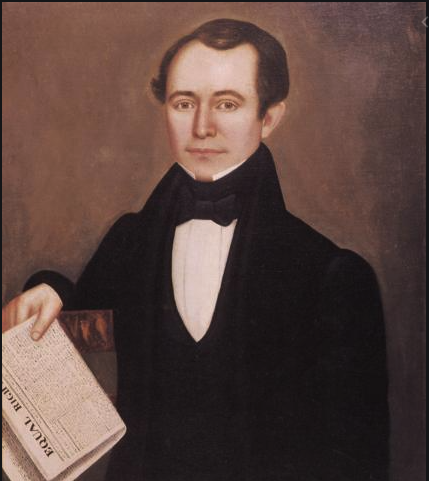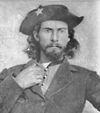Riots: Thoughts by William Leggett, From the "Evening Post," July 12, 1834

By the mid 1830s, animosity between abolitionists and anti-abolitionists was creating significant problems in parts of the country. Although William Leggett was unequivocally against slavery, he opposed violence and rioting as a legitimate form of protest.
His views on how to deal with rioters is quite interesting.
August Glen-James, editor
Let them be fired upon, if they dare collect together again to prosecute their nefarious designs. Let those who make the first movement towards sedition be shot down like dogs—and thus teach to their infatuated followers a lesson which no milder course seems sufficient to inculcate.
The details which are published below, from the Journal of Commerce and the Daily Advertiser of this morning, are already on their way to every quarter of the country, to inform the whole people of the United States of the additional and deplorable blot which the events of last night have stamped on the character of this city. The fury of demons seems to have entered into the breasts of our misguided populace. Like those ferocious animals which, having once tasted blood, are seized with an insatiable thirst for gore, they have had an appetite awakened for outrage, which nothing but the most extensive and indiscriminate destruction seems capable of appeasing. The cabin of the poor negro, and the temples dedicated to the service of the living God, are alike the objects of their blind fury. The rights of private and public property, the obligations of the law, the authority of its ministers, and even the power of the military, are all equally spurned by these audacious sons of riot and disorder. What will be the next mark of their licentious wrath it is impossible to conjecture.
This night the trial is to be once again made whether the public authorities or a lawless mob are to be masters of the city; whether a motley assemblage of infuriated and besotted ruffians, animated with a hellish spirit, are to destroy and slay at the promptings of their wild passions and prejudices; or whether the true sentiments of this great community are to have their due preponderance. We accord to the city magistrates all the praise which their conduct hitherto deserves. But at the same time we must take leave to advise them, in the most serious manner, no longer to forbear resorting to stronger measures, to such measures as it is now evident can alone effectually quell the insurrectionary and destroying spirit which the proceedings of the Abolitionists, the indiscreet comments of certain prints, and most especially the seditious and inflammatory advice of that journal of whose tone and temper a specimen is given above, have aroused.
[The “inflammatory advice” was omitted from this compilation of Leggett’s writings as the editor of his works didn’t want to aggravate raw feelings on the subject again. Editor.]
We call upon them not again to repeat the idle pageant of a military procession; not to add to the confidence of the rioters by an empty, ineffectual display of unused weapons. Let them be fired upon, if they dare collect together again to prosecute their nefarious designs. Let those who make the first movement towards sedition be shot down like dogs—and thus teach to their infatuated followers a lesson which no milder course seems sufficient to inculcate. This is no time for expostulation or remonstrance. Forbearance towards these rioters is cruelty towards the orderly and peaceable part of the community. Let us act with such promptness and decision now as to ensure that there will be no repetition of such outrages in time to come. Let us restore the dignity of the violated law. Let us not pause to parley when the foe is at the gate. Let us be brief when traitors brave the field. We would recommend that the whole military force of the city be called out; that large detachments be stationed wherever any ground exists to anticipate tumultuary movements; that smaller bodies patrol the streets in every part of the city, and that the troops be directed to fire upon the first disorderly assemblage that refuses to disperse at the bidding of lawful authority. This will restore peace and quietness to the city, and nothing short of this will do so.
